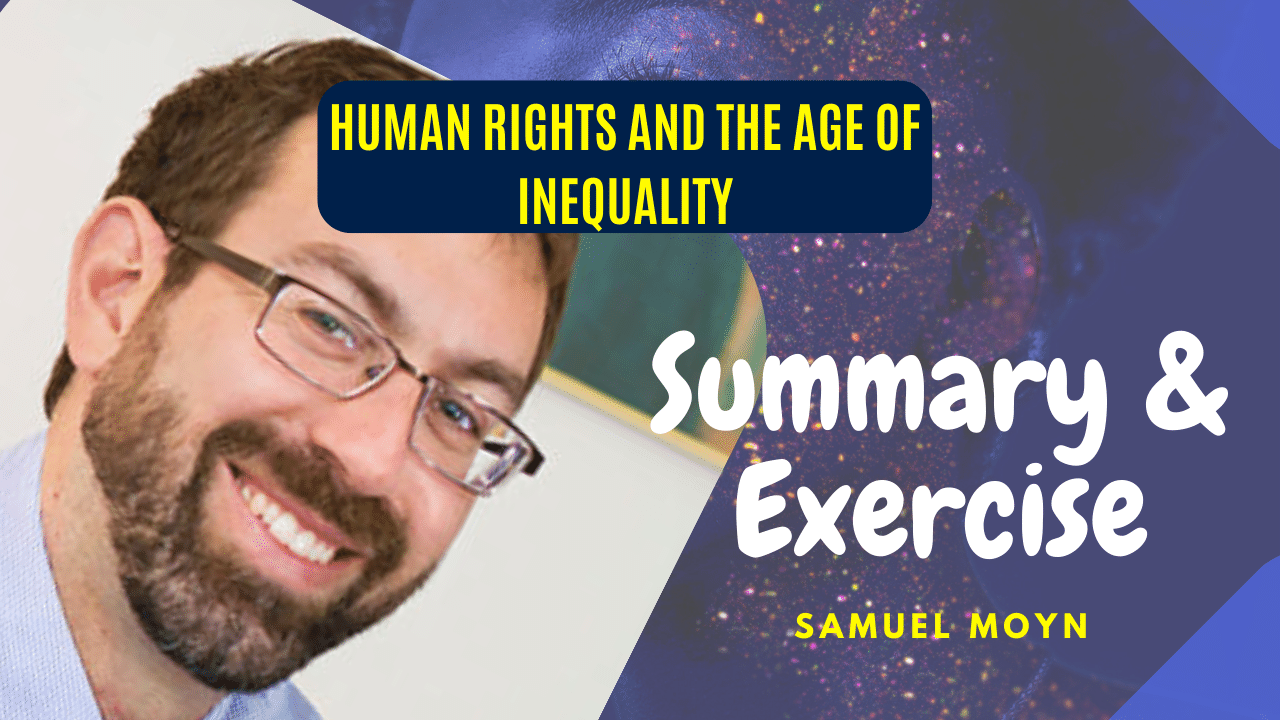In this section, we will provide you with the exercise of Human Rights and the Age of Inequality which is based on the NEB curriculum grade 12 Compulsory English. In the previous section, you have studied the detailed summary of the text and author info. For more information, you can contact the admin and/or post a comment.
Understanding the text
Answer the following questions.
a. What is the first human rights declaration adopted by the United Nations?
➜ The first human rights declaration adopted by the United Nations is a mobilization for economic and social rights.
b. When is Human Rights Day observed?
➜ Human Rights Day is observed on 10th December every year.
c. What is the goal of the Universal Declaration of Human Rights?
➜The purpose of the Universal Declaration of Human Rights is to present a list of the most fundamental entitlements or vital values that persons deserve as a result of their humanity. Furthermore, its goal is to establish the “global basis of freedom, justice, and peace.”
d. What are two big stages that involve writing the history of human rights in relation to that of political economy?
➜ The two big stages that involve writing the history of human rights in relation to that of political economy are:
- The heroic age of national welfare after World War II.
- The bitter enemies of the new cold war era in 1948.
e. What are the facts that have been missed in Roosevelt’s call for a “second Bill of Rights”?
➜ The facts that have been missed in Roosevelt’s call for a “second Bill of Rights” are:
- First, it marked a characteristically provincial America’s Late and ginger entry into an already foreordained North Atlantic consensus.
- Second, his highest promise was not a floor of protection for the masses but the end of “special privileges for the few” – a ceiling on inequality.
- Lastly, Roosevelt certainly hoped it would span the globe but it was organized nationally, not internationally.
f. Write the truth expressed in Herodotus’s History.
➜ According to Herodotus’ History, global socioeconomic justice, like local socioeconomic justice, would necessitate transfer under pressure from the affluent to the poor via fresh kinds of legal activity.
g. Why is the Universal Declaration of Human Rights important to you?
➜ The Universal Declaration of Human Rights is important to me as it works in favour of all human beings for their rights, justice, equality, and equity by removing partiality, injustice, inequality, discrimination, and so on from society.
Reference to the Context
a. Does the essay give ways how to stigmatize inequality? Explain.
➜ The article “Human Rights in the Age of Inequality” does not provide particular methods for stigmatizing inequality, although it does discuss inequality stigmatization. Most importantly, history reveals that they are the wrong type of actor; they are not afraid enough to cause redistribution. If inequality continues to develop at this rate, opponents will emerge at some point. As a result, it is preferable to maintain social equality and fairness.
Social equality and liberty may be justified by developing a new type of human rights movement for the sake of the common people. Proper supervision and monitoring, stakeholder support, establishing stringent legislation, eradicating bias and upholding fairness and equality, and so on are all required for the humanitarian benefit of all human beings. Inequality is viewed as a social disgrace since it causes squabbles and disagreements among individuals, hence a healthy balance is essential.
b. Is another human rights movement necessary? Why?
➜ Yes, another human rights movement is necessary as the essayist finds Human Rights is functioning under political suppression constrained in human affairs. He wishes to see another Human rights movement in the coming days due to following reasons:
- People who are in powerful positions are found violating the laws.
- Inequality has been contained in human affairs.
- Nepotism and favouritism are still in practice.
- Law is to be given top priority.
- Political and social hegemony is still prevalent in the world.
- Laws and rights are only documented rather it is not in practice.
- There is a need for rights and justice for all human beings whether they are rich or poor, belong to the upper class or lower class.
Reference beyond the text
a. What are the challenges in maintaining human rights in Nepal?
➜ Human rights are the basic rights and freedoms that belong to everyone. International law, including treaties, contains provisions which give human rights legal effect.
Human rights were established in the year 2000 as a statutory body under the Human Rights Commission Act 1997 (2053 BS) in Nepal. The interim Constitution of Nepal 2007 (2063 BS) made the NHRC a constitutional body.
The main challenging factors in maintaining human rights in Nepal are as follows:
- Poverty (particularly in rural areas)
- Education disparities
- Gender inequality
- Health issues
- Child rights violations
- Misuse of power
- Nepotism, corruption, bribery, illiteracy and ignorance of people
- Priority for the personal benefits or favour
- Lack of proper mechanism to systematize policies
- Lack of proper strategies to implement the rules of laws etc.


